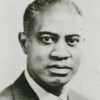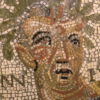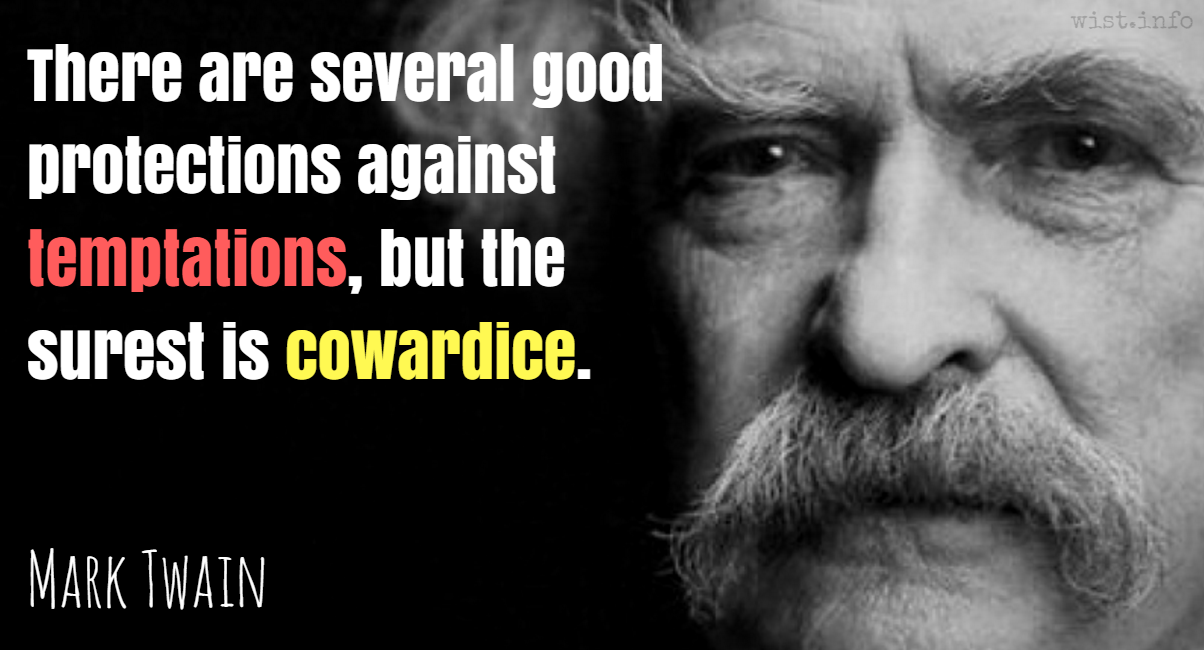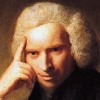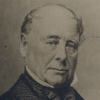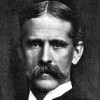People will tell us that without the consolations of religion they would be intolerably unhappy. So far as this is true, it is a coward’s argument. Nobody but a coward would consciously choose to live in a fool’s paradise. When a man suspects his wife of infidelity, he is not thought the better of for shutting his eyes to the evidence. And I cannot see why ignoring evidence should be contemptible in one case and admirable in the other.
Bertrand Russell (1872-1970) English mathematician and philosopher
“Is There a God?” (1952)
(Source)
Essay commissioned by Illustrated magazine in 1952, but never published there. First publication in Russell, Last Philosophical Testament, 1943-68 (1997) [ed. Slater/Köllner].
Quotations about:
cowardice
Note not all quotations have been tagged, so Search may find additional quotes on this topic.
He was not a strong-minded man; but he had one quality which is almost as valuable a safeguard against temptation as strength of mind — namely, timidity.
F. Anstey (1856-1934) English novelist and journalist (pseud. of Thomas Anstey Guthrie)
Tourmalin’s Time Cheques, Prologue (1885)
(Source)
Men will readily enough avow cruelty, passion, even avarice, but never cowardice, because such an admission would bring them, among savages and even in civilized society, into mortal danger.
[Les hommes avouent volontiers la cruauté, la colère, l’avarice même, mais jamais la lâcheté, parce que cet aveu les mettrait, chez les sauvages et même dans une société polie, en un danger mortel.]
Anatole France (1844-1924) French poet, journalist, novelist, Nobel Laureate [pseud. of Jaques-Anatole-François Thibault]
The Gods Will Have Blood [Les Dieux Ont Soif], ch. 19 [Brotteaux] (1912) [tr. Allinson (1913), The Gods Are Athirst]
(Source)
(Source (French)). Alternate translation:
Men willingly post of their cruelty, their anger, their greed even, but never of their cowardice, because to admit such a thing would put them, whether in a primitive or a civilized society, in mortal peril.
[tr. Davies (1979)]
Cowardice or Bravery is never racial. You find both in every Country. No country has a monopoly on Bravery; great deeds of heroism is liable to break out in the most unexpected places.
Will Rogers (1879-1935) American humorist
“More Letters of a Self-Made Diplomat,” Saturday Evening Post (1932-03-12)
(Source)
Dark stratagems, and treachery, to relieve
The coward’s wants, were by mankind devis’d.[δόλοι δὲ καὶ σκοτεινὰ μηχανήματα
χρείας ἀνάνδρου φάρμαχ᾽ εὕρηται βροτοῖς.]Euripides (485?-406? BC) Greek tragic dramatist
Bellerophon [Βελλεροφῶν], frag. 288 (TGF) (c. 430 BC) [tr. Wodhull (1809)]
(Source)
Nauck frag. 290, Barnes frag. 42, Musgrave frag. 8. (Source (Greek)). Alternate translations:
Tricks and dark schemes are mankind's invention as
cowardly remedies against need.
[tr. Collard, Hargreaves, Cropp (1995)]
Trickery and devious devices are man’s unmanly means to meet his needs.
[tr. Stevens (2012)]
Conscience makes cowards of us all. Politeness is even worse. It makes actors of us.
H. L. Mencken (1880-1956) American writer and journalist [Henry Lewis Mencken]
A Little Book in C Major, ch. 2, § 26 (1916)
(Source)
Not reprinted in later works.
For what is there more hideous than avarice, more brutal than lust, more contemptible than cowardice, more base than stupidity and folly? Well, then, are we to call those persons unhappy, who are conspicuous for one or more of these, on account of some injuries, or disgraces, or sufferings to which they are exposed, or on account of the moral baseness of their sins?
[Quid enim foedius auaritia, quid immanius libidine, quid contemptius timiditate, quid abiectius tarditate et stultitia dici potest? Quid ergo? Eos qui singulis uitiis excellunt aut etiam pluribus, propter damna aut detrimenta aut cruciatus aliquos miseros esse dicimus, an propter uim turpitudinemque uitiorum?]
Marcus Tullius Cicero (106-43 BC) Roman orator, statesman, philosopher
De Legibus [On the Laws], Book 1, ch. 19 / sec. 51 (1.19/1.51) [Marcus] (c. 51 BC) [tr. Barham/Yonge (1878)]
(Source)
(Source (Latin)). Alternate translations:
For what is there more hideous than avarice, more ferocious than lust, more contemptible than cowardice, more base than stupidity and folly? Well, therefore, may we style unhappy, those persons in whom any one of these vices is conspicuous, not on account of the disgraces or losses to which they are exposed, but on account of the moral baseness of their sins.
[tr. Barham (1842)]
For what can be thought of that is more loathsome than greed, what more inhuman than lust, what more contemptible than cowardice, what more degraded than stupidity and folly? Well, then, shall we say that those who are sunk deepest in a single vice, or in several, are wretched on account of any penalties or losses or tortures which they incur, or on account of the base nature of the vices themselves?
[tr. Keyes (1928)]
What can be called more revolting than greed, more bestial than lust, more despicable than cowardice, more abject than dullness and stupidity? What then? Take those people who are conspicuous for one (or more than one) vice. Do we call them wretched because of the losses or damages or pain they suffer, or because of the power and ugliness of their vices?
[tr. Rudd (1998)]
What is uglier than greed, what is more horrible than lust, what is more contemptible than cowardice, what is lower than sloth and stupidity? What then? People who are remarkable for single vices or even for several -- do we call them wretched because of material losses or torture, or because of the great dishonor from the vices themselves?
[tr. Zetzel (1999)]
What could be called fouler than avarice, what more monstrous than lust, what more scorned than cowardice, what more despicable than dullness and foolishness? What then? Do we say about those who are conspicuous for their individual vices, or even many vices, that they are wretched because of losses or damages or tortures, or because of the significance and the disgrace of their vices?
[tr. Fott (2013)]
“If rightly I read the trouble in thy breast,”
The shade of the Magnanimous replied,
“With cowardice thy spirit is oppressed,
Which oftentimes a man hath mortified,
So that it turns him back from noble deed,
As with false seeing a beast will start aside.”[“S’i’ ho ben la parola tua intesa”,
rispuose del magnanimo quell’ombra,
“l’anima tua è da viltade offesa;
la qual molte fïate l’omo ingombra
sì che d’onrata impresa lo rivolve,
come falso veder bestia quand’ombra.”]Dante Alighieri (1265-1321) Italian poet
The Divine Comedy [Divina Commedia], Book 1 “Inferno,” Canto 2, l. 43ff (2.43-48) [Virgil] (1309) [tr. Binyon (1943)]
(Source)
(Source (Italian)). Alternate translations:
If I your words have rightly understood,
Replied the Shade magnanimous, your Mind
Is stagger'd with distrust, which oft perverts
A good design with honour first begun:
As frequently the shadow of a beast
Appears more horrid than the form itself.
[tr. Rogers (1782), ll. 39-44]
"Speak'st thou thy thought!" the dauntless shade replies;
"Dishonour'd ever be that soul unwise,
That takes to counsel cold suggesting fear!
Unmanly fear, that chains the lib'ral mind,
And fills with dreadful chapes the puffing wind; --
But thou resolve, and scorn to linger here!
[tr. Boyd (1802), st. 9]
"If right thy words
I scan," replied that shade magnanimous,
"Thy soul is by vile fear assail'd, which oft
So overcasts a man, that he recoils
From noblest resolution, like a beast
At some false semblance in the twilight gloom."
[tr. Cary (1814)]
"If of thy words I rightly read the scope,
Thy stumbling soul," replied that hero-ghost,
"With its own cowardice is loth to cope.
Man oftentime she, cumbering to his cost,
Turns recreant from each generous aim away.
Like startled beast by mocking shadow crost."
[tr. Dayman (1843)]
"If I have rightly understood thy words," replied that shade of the Magnanimous, "thy soul is smit with coward fear,
which oftentimes encumbers men, so that it turns them back from honoured enterprise; as false seeing does a startled beast."
[tr. Carlyle (1849)]
"If well I understand your speech," replied
The shade of the Magnanimous, "your soul,
Hurt with vile cowardice, is in the toil
The which our nature often will embroil --
From honoured enterprise the mind recall,
Like a false bugbear, when the shadows fall."
[tr. Bannerman (1850)]
"If I thy words have rightly understood,"
Then answer'd me that shade magnanimous, --
"Thy spirit is by cowardice unstrung,
By which man oft is hinder'd and beset,
So that he turns away from honour's call,
As a beast starts, by vision false deceiv'd.
[tr. Johnston (1867)]
"If I have well thy language understood,"
Replied that shade of the Magnanimous,
"Thy soul attainted is with cowardice,
Which many times a man encumbers so,
It turns him back from honored enterprise,
As false sight doth a beast, when he is shy.
[tr. Longfellow (1867)]
‘If I have well understood thy word,’ replied that shade of the high-souled one, ‘thy soul is hindered by cowardice, which oftentimes so encumbers the man that it turns him back from honourable enterprise, as wrong-seeing does a beast when it shies.’
[tr. Butler (1885)]
"If thy words' meaning clearly I devise,"
Answered the shadow of that noble bard,
"Thy spirit of its vileness feels the poise,
Which many a time and oft will man retard,
So that the honoured enterprise they leave,
As beasts in darkness falsely things regard.
[tr. Minchin (1885)]
“If I have rightly understood thy speech,” replied that shade of the magnanimous one, “thy soul is hurt by cowardice, which oftentimes encumbereth a man so that it turns him back from honorable enterprise, as false seeing does a beast when it is startled."
[tr. Norton (1892)]
"If I have rightly understood thy speech," answered the shade of him of mighty mind, "thy spirit is assailed by cowardice, which oftentimes perplexeth man, so that it turneth him away from honoured enterprise, even as uncertain sight turneth a beast when it is growing dark."
[tr. Sullivan (1893)]
"If of thy words I have right understanding,"
That shade of the magnanimous made answer,
"Thy soul by cowardice is overpowered,
Which oftentimes doth so a man encumber
That back from honest enterprise it turns him,
As false sight doth a beast, when shades are falling.
" [tr. Griffith (1908)]
"If I have rightly understood thy words," replied the shade of that great soul, "thy spirt is smitten with cowardice, which many a time encumbers a man so that it turns him back from honourable enterprise, as a mistaken sight a shying beast."
[tr. Sinclair (1939)]
"If I have grasped what thou dost seem to say,"
The shade of greatness answered, "these doubts breed
From sheer black cowardice, which day by day
Lays ambushes for men, checking the speed
Of honourable purpose in mid-flight,
As shapes half-seen startle a shying steed."
[tr. Sayers (1949)]
"I understand your words, and the look in your eyes,"
that shadow of magnificence answered me,
"your soul is shrunk in that cowardice
that bears down many men, turning their course
and resolution by imagined perils,
as his own shadow turns the frightened horse."
[tr. Ciardi (1954)]
"If I have well understood what you say," the shade of that magnanimous one replied, "your spirit is beset by cowardice, which oftentimes encumbers a man, turning him from honorable endeavor, as false seeing turns a beast that shies."
[tr. Singleton (1970)]
"If I have truly understood your words,"
that shade of magnanimity replied,
"your soul is burdened with that cowardice
which often weighs so heavily on man
it turns him from a noble enterprise
like a frightened beast that shies at its own shadow."
[tr. Musa (1971)]
"If I have understood what you have said,"
replied the shade of that great-hearted one,
"your soul has been assailed by cowardice,
which often weighs so heavily on a man --
distracting him from honorable trials --
as phantoms frighten beasts when shadows fall."
[tr. Mandelbaum (1980)]
"If I have understood what you have said,"
The reply came from that shadow of generosity,
"Your spirit is touched by cowardice, which sometimes
Lies like a load on men, and makes them flag
So that they turn back from the fittest task,
Like an animal which mistakes what it looks at."
[tr. Sisson (1981)]
"If I understand," the generous shade retorted,
"Cowardice grips your spirit -- which can twist
A man away from the noblest enterprise
As a trick of vision startles a shying beast."
[tr. Pinsky (1994), ll. 36-39]
"If I have well understood your word," replied the shade of that great-souled one, "your soul is wounded by cowardice,
which many times so encumbers a man that he turns back from honorable endeavor, as a false sight turns a beast when it shies."
[tr. Durling (1996)]
The ghost of the generous poet replied: "If I have understood your words correctly, your spirit is attacked by cowardly fear, that often weighs men down, so that it deflects them from honourable action, like a creature seeing phantoms in the dusk."
[tr. Kline (2002)]
"If I have rightly grasped your idiom,"
replied my guide with kindly acumen,
"your coward soul has gone completely numb
with fear, which often does encumber men,
who, like a beast that's frightened by its shadow, shy away from
what they first maintained.
[tr. Carson (2002)]
"Supposing I have heard your words aright,"
the shadow of that noble mind replied,
"your heart is struck with ignominious dread.
This, very often, is the stumbling block
that turns a noble enterprise off-course --
as beast will balk at shadows falsely seen.
[tr. Kirkpatrick (2006)]
"If I have rightly understood your words,"
replied the shade of that great soul,
"your spirit is assailed by cowardice,
which many a time so weighs upon a man
it turns him back from noble enterprise,
the way a beast shies from a shadow."
[tr. Hollander/Hollander (2007)]
"If I have understood what you've just told me,"
The ghost of that gracious, mighty poet replied,
"Cowardice is overwhelming your soul,
A common weakness, swinging from side to side
A man's clear vision of honor's noble way,
As shapes and shadows deceive an animal's eyes."
[tr. Raffel (2010)]
"If I have understood your words aright,"
Magnanimously the great shade replied,
"Your soul is crumbing from the needless blight
Of misplaced modesty, which is false pride
Reversed, and many men by this are swayed
From honourable enterprise. One thinks
Of a dreaming beast that wakes with temper frayed
And finds the prowler into whom it sinks
Its teeth does not exist."
[tr. James (2013), l. 56ff]
But a man can be physically courageous and morally craven.
Melvin B. Tolson (1898-1966) American poet, educator, columnist, politician
“Paul Robeson Rebels against Hollywood’s Dollars,” Caviar and Cabbage column, Washington Tribune (25 Mar 1939)
(Source)
‘Tis fear that proves souls base-born.
[Degeneres animos timor arguit.]
Virgil (70-19 BC) Roman poet [b. Publius Vergilius Maro; also Vergil]
The Aeneid [Ænē̆is], Book 4, l. 13 (4.13) [Dido] (29-19 BC) [tr. Fairclough (1916)]
(Source)
Of the bravery shown in Aeneas' tale demonstrating what a great, if not even divine, man he is.
(Source (Latin)). Alternate translations:
Feare shews degenerate minds.
[tr. Ogilby (1649)]
Fear ever argues a degenerate kind.
[tr. Dryden (1697)]
Fear argues a degenerate mind.
[tr. Davidson/Buckley (1854)]
Fear proves a base-born soul.
[tr. Connington (1866)]
Fear shows degenerate souls.
[tr. Cranch (1872)]
Fear proves the vulgar spirit.
[tr. Mackail (1885)]
For fear it is shows base-born souls.
[tr. Morris (1900)]
Fear argues souls degenerate and base.
[tr. Taylor (1907), st. 2, l. 14]
'Tis cowardice
betrays the base-born soul.
[tr. Williams (1910)]
Fear proves a bastard spirit.
[tr. Humphries (1951)]
Mean souls convict themselves by cowardice.
[tr. Day Lewis (1952)]
For in the face of fear
the mean must fall.
[tr. Mandelbaum (1971)]
Tell-tale fear
Betrays inferior souls.
[tr. Fitzgerald (1981), ll. 19-20]
If there is any baseness in a man, it shows as cowardice.
[tr. West (1990)]
Fear reveals the ignoble spirit.
[tr. Kline (2002)]
Fear
Always gives away men of inferior birth.
[tr. Lombardo (2005)]
Fear exposes the lowborn man at once.
[tr. Fagles (2006), l. 16]
Fear shows up lesser men.
[tr. Bartsch (2021)]
The brave dies perhaps two thousand deaths if he’s intelligent. He simply doesn’t mention them.
Ernest Hemingway (1899-1961) American writer
A Farewell to Arms, ch. 21 [Catherine] (1929)
(Source)
Referring to a common paraphrase of Shakespeare's Julius Caesar (2.2.34) "The coward dies a thousand deaths, the brave but one."
CAESAR: Cowards die many times before their deaths;
The valiant never taste of death but once.
Of all the wonders that I yet have heard,
It seems to me most strange that men should fear,
Seeing that death, a necessary end,
Will come when it will come.William Shakespeare (1564-1616) English dramatist and poet
Julius Caesar, Act 2, sc. 2, l. 34ff (2.2.34-39) (1599)
(Source)
The initial phrase has seemingly morphed in the retelling, though still being cited to Shakespeare: "A coward dies a thousand times before his death, but the valiant taste of death but once." This is the form most often seen, but is not Shakespeare.
In A Farewell to Arms (1929), Hemingway gives another paraphrase: "The coward dies a thousand deaths, the brave but one." This, too, sometimes gets modified to make it scan better, e.g., "A coward dies a thousand deaths, the brave dies only once."
Lots of people would be as cowardly as me if they were brave enough.
Oh friends, be men! Deep treasure in your hearts
An honest shame, and, fighting bravely, fear
Each to incur the censure of the rest.
Of men so minded more survive than die,
While dastards forfeit life and glory both.[ὦ φίλοι ἀνέρες ἔστε, καὶ αἰδῶ θέσθ᾽ ἐνὶ θυμῷ,
ἀλλήλους τ᾽ αἰδεῖσθε κατὰ κρατερὰς ὑσμίνας.
αἰδομένων δ᾽ ἀνδρῶν πλέονες σόοι ἠὲ πέφανται:
φευγόντων δ᾽ οὔτ᾽ ἂρ κλέος ὄρνυται οὔτέ τις ἀλκή.]Homer (fl. 7th-8th C. BC) Greek author
The Iliad [Ἰλιάς], Book 15, l. 561ff (15.561) [Ajax] (c. 750 BC) [tr. Cowper (1791), l. 679ff]
(Source)
Original Greek. Alternate translations:
Good friends, bring but yourselves to feel the noble stings of shame
For what ye suffer, and be men. Respect each other’s fame;
For which who strives in shame’s fit fear, and puts on ne’er so far,
Comes oft’ner off. Then stick engag’d; these fugitives of war
Save neither life, nor get renown, nor bear more mind than sheep.
[tr. Chapman (1611), l. 508ff]
O Greeks! respect your fame,
Respect yourselves, and learn an honest shame:
Let mutual reverence mutual warmth inspire,
And catch from breast to breast the noble fire.
On valour's side the odds of combat lie,
The brave live glorious, or lamented die;
The wretch that trembles in the field of fame,
Meets death, and worse than death, eternal shame.
[tr. Pope (1715-20)]
O my friends, be men, and set honour in your hearts, and have reverence for each other during the vehement conflicts. For more of those men who reverence each other are saved than slain; but of the fugitives, neither glory arises, nor any defence.
[tr. Buckley (1860)]
Brave comrades, quit ye now like men;
Bear a stout heart; and in the stubborn fight
Let each to other mutual succour give;
By mutual succour more are sav’d than fall;
In timid flight nor fame nor safety lies.
[tr. Derby (1864)]
My friends, be men, and fear dishonour; quit yourselves in battle so as to win respect from one another. Men who respect each other's good opinion are less likely to be killed than those who do not, but in flight there is neither gain nor glory.
[tr. Butler (1898)]
My friends, be men, and take ye shame in your hearts, and have shame each of the other in the fierce conflict. Of men that have shame more are saved than are slain; but from them that flee springeth neither glory nor any avail.
[tr. Murray (1924)]
Friends, respect yourselves as men,
respect each other in the moil of battle!
Men with a sense of shame survive
more often than they perish. Those who run
have neither fighting power nor any honor.
[tr. Fitzgerald (1974)]
Be men, my friends! Discipline fill your hearts!
Dread what comrades say of you here in bloody combat!
When men dread that, more men come through alive --
when soldiers break and run, good-bye glory,
good-bye all defenses!
[tr. Fagles (1990), l. 651ff]
Now, dear friends, be men, keep hold of your valorous spirit,
feel shame, each on account of the rest in the violent combats;
more of the men who feel such shame live safely than perish,
while from the ones who flee no glory nor any defense springs.
[tr. Merrill (2007), l. 529ff]
Back of every mistaken venture and defeat is the laughter of wisdom, if you listen. We go forward by failure. Every blunder behind us is giving a cheer for us and only those who are willing to fail shall taste the dangers and splendors of life. To be a good loser is to learn how to win. The real coward is he who sees no glory in failure.
M. says he would much rather be a coward than brave because people hurt you when you are brave …
E. M. Forster (1879-1970) English novelist, essayist, critic, librettist [Edward Morgan Forster]
Quoted by Alice Forster in a letter (1883)
(Source)
Ellipsis in original. Forster was 4 years old at the time. In P. N. Furbank, E. M. Forster: The growth of the novelist (1879-1914) (1977).
Was none who would be foremost
To lead such dire attack;
But those behind cried “Forward!”
And those before cried “Back!”Thomas Babington Macaulay (1800-1859) English writer and politician
“Horatius,” st. 50, Lays of Ancient Rome (1842)
(Source)
Your minds that once did stand erect and strong,
What madness swerves them from their wonted course?
[Quo vobis mentes, rectae quae stare solebant
antehac, dementis sese flexere viai?]Ennius (239-169 BC) Roman poet, writer [Quintus Ennius]
Annals, Book 6, frag. 11 [tr. Falconer (1923)]
(Source)
Setting the words of Appius Claudius to verse, when Appius in his old age berated the Senate for considering peace and alliance with King Pyrrhus of Epirus, who had defeated them (in a "Pyrhhic victory") at Heraclea (280 BC). Fragment recorded in Cicero, De Senectute, ch. 6 / sec. 16 (4.16) (44 BC).
(Source (Latin)). Alternate translations:
Why seid Appius haue ye inclyned and revaled youre couragious hertys whiche til nowe were accustumyd to be ferme and stidfast. Be ye madd or for lak of discressyon agree ye for to condescend and desyre ye to make alliance and peas with kyng Pirrus bycause that he putteth in strength for to putt you downe and in subjection and wolde destroye yowe?
[tr. Worcester/Worcester/Scrope (1481)]
Why do your wits
And senses so rave?
What foolish conceit
Doth encumber your brain?
Where be the ripe judgments,
Which wont you were to have,
To agree to your country's
Ruin most plain?
[tr. Newton (1569)]
Whether now bend your minds, a headlong fall to bring,
Which heretofore had wont to stand, as straight as any thing.
[tr. Austin (1648)]
Whither now do you bend your Thoughts
Which, heretofore, were firm and resolute,
What! madly on your Ruin. ? --
[tr. J. D. (1744)]
What Frenzy now has your wild Minds possest?
You, who were first with sagest Counsels blest,
Your selves on sure Destruction thus to throw!
[tr. Logan (1744)]
Shall folly now that honoured Council sway,
Where sacred wisdom wont to point the way!
[tr. Melmoth (1773)]
Ah! wither have your minds demented turned themselves, wich heretofore were wont to stand erect?
[Cornish Bros. ed. (1847)]
Whither have your minds, which used to stand upright before, in folly turned away?
[tr. Edmonds (1874)]
Wont to stand firm, upon what devious way
Demented rush ye now?
[tr. Peabody (1884)]
Whither have swerved the souls so firm of yore?
Is sense grown senseless? Can feet stand no more?
[tr. Shuckburgh (1895)]
Where are the minds that used to stand serene,
where is the bravery that once has been?
[tr. Allison (1916)]
What is this madness that has turned your minds, until now firm and strong, from their course?
[tr. Grant (1960, 1971 ed.)]
Where are your minds? They always stood up straight till now! Are you mad? Where did you miss the road?
[tr. Copley (1967)]
Up until now your minds were straight and firm.
What bends them now onto this foolish path?
[tr. Cobbold (2012)]
How on earth could your mind
Once upright and dignified
Take a downturn and backslide?
[tr. Bozzi (2015)]
What madness has turned your minds, once firm and strong, from their course?
[tr. Freeman (2016)]
Some Saian mountaineer
Struts today with my shield.
I threw it down by a bush and ran
When the fighting got hot.
Life seemed somehow more precious.
It was a beautiful shield.
I know where I can buy another
Exactly like it, just as round.Archilochus (c. 680-645 BC) Greek lyric poet and mercenary [Ἀρχίλοχος, Archilochos, Arkhilokhus]
Fragment 79 [tr. Davenport (1964)]
(Source)
Fragment from Plutarch, "Laws and Customs of the Lacedaemonians". Alt. trans.:Identified elsewhere as Fragment 6.
- "Let who will boast their courage in the field, / I find but little safety from my shield. / Nature's, not honour's, law we must obey: / This made me cast my useless shield away, / And, by a prudent flight and cunning, save / A life, which valour could not, from the grave. / A better buckler I can soon regain; / But who can get another life again?" [tr. Pulleyn (18th C)]
- "A Saian boasts about the shield which beside a bush / though good armour I unwillingly left behind. / I saved myself, so what do I care about the shield? / To hell with it! I'll get one soon just as good." ["To my shield" (D6, 5W)]
- "I don't give a damn if some Thracian ape struts / Proud of that first-rate shield the bushes got. / Leaving it was hell, but in a tricky spot / I kept my hide intact. Good shields can be bought." [tr. Silverman]
- "Some barbarian is waving my shield, since I was obliged to leave that perfectly good piece of equipment behind under a bush. But I got away, so what does it matter? Life seemed somehow more precious. Let the shield go; I can buy another one equally good." [tr. Lattimore (1955)]
It’s a funny thing, the less people have to live for, the less nerve they have to risk losing — nothing.
Zora Neale Hurston (1891-1960) American writer, folklorist, anthropologist
Moses, Man of the Mountain, ch. 2 (1939)
(Source)
There are several good protections against temptations, but the surest is cowardice.
Mark Twain (1835-1910) American writer [pseud. of Samuel Clemens]
Following the Equator, ch. 36, epigraph (1897)
(Source)
We have been the cowards, lobbing cruise missiles from 2,000 miles away. That’s cowardly. Staying in the airplane when it hits the building, say what you want about it, that’s not cowardly. Stupid maybe, but not cowardly.
When a nation forgets her skill in war, when her religion becomes a mockery, when the whole nation becomes a nation of money-grabbers, then the wild tribes, the barbarians drive in. … Who will our invaders be? From whence will they come?
The brave only know how to forgive; it is the most refined and generous pitch of virtue human nature can arrive at. Cowards have done good and kind actions, cowards have even fought, nay some times, even conquered; but a coward never forgave. It is not in his nature; the power of doing it flows only from a strength and greatness of soul, conscious of its own force and security, and above the little temptations of resenting every fruitless attempt to interrupt its happiness.
Laurence Sterne (1713-1786) Anglo-Irish novelist, Anglican clergyman
Sermon 12, “Joseph’s History Considered”
(Source)
The desire for safety stands against every great and noble enterprise.
[Nisi impunitatis cupido retinuisset, magnis semper conatibus adversa.]
Europe […] have totally mistaken our character. Accustomed to rise at a feather themselves, and to be always fighting, they will see in our conduct, fairly stated, that acquiescence under wrong, to a certain degree, is wisdom & not pusillanimity, and that peace and happiness are preferable to that false honor which, by eternal wars, keeps their people in eternal labor, want and wretchedness.
Thomas Jefferson (1743-1826) American political philosopher, polymath, statesman, US President (1801-09)
Letter to James Madison (23 Mar 1815)
(Source)
Your spirit, youth, and valour give me heart, not to mention necessity, which makes even the timid brave.
[Animus, aetas, virtus vostra me hortantur, praeterea necessitudo, que etiam timidos fortis facit.]
Sallust (c. 86-35 BC) Roman historian and politician [Gaius Sallustius Crispus]
Bellum Catilinae [The War of Catiline; The Conspiracy of Catiline], ch. 58, sent. 19 [tr. Rolfe (1931)]
(Source)
Catiline, addressing his troops. Usually shortened to "Necessity makes even the timid brave" [Necessitas etiam timidos fortes facit.]. Original Latin.
Alt. trans.:
- "From your youthful vigor and undaunted courage I expect every advantage. Even the difficulties of our situation inspire me with confidence; for difficulties have often produced prodigies of valor." [tr. Murphy (1807)]
- "Your spirit, your age, your virtue encourage me; and our necessity, too, which even inspires cowards with bravery." [tr. Rose (1831), ch. 61]
- "Your spirit, your age, your valour encourage me, the necessity moreover which makes even the timid brave." [Source (1841)]
- "Your spirit, your age, your valor, give me confidence; to say nothing of necessity, which makes even cowards brave." [tr. Watson (1867)]
- "Your resolution, your age, and your courage, and above all the inevitable nature of the encounter, which often makes even the timid brave, exhort me to this." [tr. Pollard (1882)]
Everything is un-American that tends either to government by a plutocracy, or government by a mob. To divide along the lines of section or caste or creed is un-American. All privilege based on wealth, and all enmity to honest men merely because they are wealthy, are un-American — both of them equally so. Americanism means the virtues of courage, honor, justice, truth, sincerity, and hardihood — the virtues that made America. The things that will destroy America are prosperity-at-any-price, peace-at-any-price, safety-first instead of duty-first, the love of soft living, and the get-rich-quick theory of life.
It is always easier to hear an insult and not retaliate than have the courage to fight back against someone stronger than yourself; we can always say we’re not hurt by the stones others throw at us, and it’s only at night — when we’re alone and our wife or our husband or our school friend is asleep — that we can silently grieve over our own cowardice.
To accept passively an unjust system is to cooperate with that system; thereby the oppressed become as evil as the oppressor. Non-cooperation with evil is as much a moral obligation as is cooperation with good. The oppressed must never allow the conscience of the oppressor to slumber. Religion reminds every man that he is his brother’s keeper. To accept injustice or segregation passively is to say to the oppressor that his actions are morally right. It is a way of allowing his conscience to fall asleep. At this moment the oppressed fails to be his brother’s keeper. So acquiescence — while often the easier way — is not the moral way. It is the way of the coward.
Martin Luther King, Jr. (1929-1968) American clergyman, civil rights leader, social activist, preacher
Stride Toward Freedom, ch. 11 “Where Do We Go from Here?” (1958)
(Source)
On some positions, Cowardice asks the question, “Is it safe?” Expediency asks the question, “Is it is politic?” Vanity asks the question, “Is it is popular?” But Conscience asks the question, “Is it right?” There comes a time when one must take a position that is neither safe, nor politic, nor popular, but he must do it because Conscience tells him it is right.
Martin Luther King, Jr. (1929-1968) American clergyman, civil rights leader, social activist, preacher
Speech, Santa Rita, Calif., (14 Jan 1968)
Recording (at 10:22). King reused speech elements frequently. The same passage can be found in "Remaining Awake Through a Great Revolution", sermon at the National Cathedral, Washington, DC (31 Mar 1968).
Mankind is naturally divided into three sorts; one third of them are animated at the first appearance of danger, and will press forward to meet and examine it; another third are alarmed by it, but will neither advance nor retreat, till they know the nature of it, but stand to meet it. The remaining third will run or fly upon the first thought of it.
A decline in courage may be the most striking feature that an outside observer notices in the West today. The Western world has lost its civic courage, both as a whole and separately, in each country, in each government, in each political party, and, of course, in the United Nations. Such a decline in courage is particularly noticeable among the ruling and intellectual elites, causing an impression of a loss of courage by the entire society. There are many courageous individuals, but they have no determining influence on public life.
Political and intellectual functionaries exhibit this depression, passivity, and perplexity in their actions and in their statements, and even more so in their self-serving rationales as to how realistic, reasonable, and intellectually and even morally justified it is to base state policies on weakness and cowardice. And the decline in courage, at times attaining what could be termed a lack of manhood, is ironically emphasized by occasional outbursts and inflexibility on the part of those same functionaries when dealing with weak governments and with countries that lack support, or with doomed currents which clearly cannot offer resistance. But they get tongue-tied and paralyzed when they deal with powerful governments and threatening forces, with aggressors and international terrorists.
Should one point out that from ancient times decline in courage has been considered the beginning of the end?
Alexander Solzhenitsen (1918-2008) Russian novelist, emigre [Aleksandr Isayevich Solzhenitsyn]
“A World Split Apart,” Commencement Address, Harvard (8 Jun 1978)
(Source)
Moral cowardice that keeps us from speaking our minds is as dangerous to this country as irresponsible talk. The right way is not always the popular and easy way. Standing for right when it is unpopular is a true test of moral character.
Those words, “temperate and moderate,” are words either of political cowardice, or of cunning, or seduction. A thing moderately good, is not so good as it ought to be. Moderation in temper, is always a virtue; but moderation in principle, is a species of vice.
Thomas Paine (1737-1809) American political philosopher and writer
“Letter Addressed to the Addressers on the Late Proclamation” (1791)
(Source)
Many would be Cowards if they had Courage enough.
Thomas Fuller (1654-1734) English physician, preacher, aphorist, writer
Gnomologia: Adages and Proverbs, #3366 (1732)
(Source)
Courage is resistance to fear, mastery of fear — not absence of fear. Except a creature be part coward it is not a compliment to say it is brave; it is merely a loose application of the word.
To be glad of life because it gives you to chance to love and to work and to play and to look up at the stars — to be satisfied with your possessions but not content with yourself until you have made the best of them — to despise nothing in the world except falsehood and meanness, and to fear nothing except cowardice — to be governed by you admirations rather than by your disgusts — to covet nothing that is your neighbors except his kindness of heart and gentleness of manners — to think seldom of your enemies, often of your friends, and every day of Christ; to spend as much time as you can in God’s out-of doors — these are the little guideposts on the foot-path to peace.
Henry Van Dyke (1852-1933) American clergyman and writer
“The Foot-path to Peace,” Tacoma Times (1 Jan 1904)
(Source)
Often shortened to: "Be glad for life because it gives you the chance to love and to work and to look up at the stars."
These miserable ways
The forlorn spirits endure of those who spent
Life without infamy and without praise.
They are mingled with that caitiff rabblement
Of the angels, who rebelled not, yet avowed
To God no loyalty, on themselves intent.
Heaven chased them forth, lest, being there, they cloud
Its beauty, and the deep Hell refuses them,
For, beside these, the wicked might be proud.[Questo misero modo
tegnon l’anime triste di coloro
che visser sanza ’nfamia e sanza lodo.
Mischiate sono a quel cattivo coro
de li angeli che non furon ribelli
né fur fedeli a Dio, ma per sé fuoro.
Caccianli i ciel per non esser men belli,
né lo profondo inferno li riceve,
ch’alcuna gloria i rei avrebber d’elli.]Dante Alighieri (1265-1321) Italian poet
The Divine Comedy [Divina Commedia], Book 1 “Inferno,” Canto 3, l. 34ff (3.34-42) [Virgil] (1309) [tr. Binyon (1943)]
(Source)
This passage is likely the basis for John F. Kennedy's famous paraphrase, which he credited to Dante:
The hottest places in hell are reserved for those who in a period of moral crisis maintain their neutrality.
That was originally written (and ascribed to Dante) by Henry Powell Spring in 1944. JFK used it multiple times, including in a speech as President in Germany a few days before his famous "Ich bin ein Berliner" speech. (More info on this paraphrase here.)
Dante (and, thus, Dante's cosmos) judges based on action. Thus he ranks those who would not act, pusillanimous neutrals both earthly and heavenly, as worse than even those who have acted for evil ends, and the first whose punishment we get to see. Though they committed no evil acts, they also failed to commit good ones, allowing evil to flourish. Even the tortured denizens of Hell would consider themselves their betters, thus their not being allowed in that infernal realm. Rejecting Heaven and Hell, they are blocked from either. While undergoing some corporal punishment, far worse is that, having stood only for themselves, they are robbed of their identity, nameless for all eternity (ll. 46-51).
Compare this sentiment to Revelation 3:15-16:
I know thy works, that thou art neither cold nor hot: I would thou wert cold or hot. So then because thou art lukewarm, and neither cold nor hot, I will spue thee out of my mouth.
(Source (Italian)). Alternate translations:
These doleful Beings, he reply'd, have liv'd
In Indolence, without or blame or praise.
Angels are mix'd with this unhappy band,
Who neither Rebels, nor yet faithful were
To God, but liv'd sequestered by themselves.
These Heavn' discarded for being too remiss,
Nor did e'en Hell this lukewarm herd receive;
That Favour might not to the damnn'd be shewn.
[tr. Rogers (1782), ll. 30-37]
Behold th' ignoble sons of sloth and shame,
Who scorn'd alike the voice of praise and blame,
Nor dreaded punishment, nor sought reward.
Mingled they march with that degen'rate brood,
Who when the Rebel of the sky withstood
His sov'reign Lord, aloof their squadrons held:
Viewing with selfish eye the fierce debate,
Till, from the confines of the heav'nly state,
Trembling they saw the rebel host expell'd.
Nor bore the victor-Lord the alien race,
But straight, the foul pollution to efface,
Hurl'd them indignant from the bounds of light:
This frontier then the dastard crew receiv'd,
Nor deeply damn'd, altho' of bliss bereav'd,
And doom'd to wander on the verge of night';
They suffer here, lest yon' more guilty train
of crimes unequal, doom'd to equal pain,
Blaspheming Heavn'n, should make their impious boast.
[tr. Boyd (1802), st. 8-11]
This miserable fate
Suffer the wretched souls of those, who liv'd
Without or praise or blame, with that ill band
Of angels mix'd, who nor rebellious prov'd
Nor yet were true to God, but for themselves
Were only. From his bounds Heaven drove them forth,
Not to impair his lustre, nor the depth
Of Hell receives them, lest th' accursed tribe
Should glory thence with exultation vain.
[tr. Cary (1814)]
The miserable crew
Of souls now lingers in this piteous mood,
To whom, alive, nor blame nor praise was due.
Commingled are they with that caitiff brood
Of angel natures, which nor dared rebel,
Nor yet kept faith, but selfish ends pursued.
Them, not to be less fair, must heaven expel,
Nor the abyss receive, lest their dispraise
Redound for glory to the sons of hell.
[tr. Dayman (1843)]
This miserable mode the dreary souls of those sustain, who lived without blame, and without praise.
They are mixed with that caitiff choire of the angels, who were not rebellious nor were faithful to God; but were for themselves.
Heaven chased them forth to keep its beauty from impair; and deep Hell receives them not, for the wicked wouild have some glory over them.
[tr. Carlyle (1849)]
This miserable lot
Possess the souls of those whose living days
Passed not with infamy, nor yet with praise.
Immingled they are in the caitiff choir
Of neutral angels, for themselves that stood --
Neither rebelled nor loyal were to God.
The heavens have chased them, for they'd sully heaven --
The infernal depths receive them not, because
No glory can the wicked have by those.
[tr. Bannerman (1850)]
This state of misery is held
By the sad spirits of those, who in their lives
Knew neither act of infamy nor praise.
And they are mingl'd with the wicked choir
Of Angels who, not rebels to their God,
Were yet not faithful, knowing but themselves;
Cast forth that Heav'n's pure beauty be not stain'd,
nto Hell's gloomy depths permitted not
Lest they be cause of glory to the lost.
[tr. Johnston (1867)]
This miserable mode
Maintain the melancholy souls of those
Who lived withouten infamy or praise.
Commingled are they with that caitiff choir
Of Angels, who have not rebellious been,
Nor faithful were to God, but were for self.
The heavens expelled them, not to be less fair;
Nor them the nethermore abyss receives,
For glory none the damned would have from them.
[tr. Longfellow (1867)]
This wretched fashion keep the sorry souls of those who lived without infamy and without praise. They are mingled with that caitiff band of the angels who were not rebel, nor were faithful to God, but were for themselves. Heaven chased them, that it should not be less fair, nor does the deep hell receive them, since the damned would have some boasting of them.
[tr. Butler (1885)]
After this fashion drear
These wretched souls their after-life pursue
Who both from infamy and praise lived clear.
Mingled they are with that contemptible crew
Of angels who would not rebellion dare,
Not faithful Godwards, to themselves but true.
Heaven drove them out, lest it might be less fair,
Neither received them deepest Hell's domain,
That from them, evil should no glory share.
[tr. Minchin (1885)]
This miserable measure the wretched souls maintain of those who lived without infamy and without praise. Mingled are they with that caitiff choir of the angels, who were not rebels, nor were faithful to God, but were for themselves. The heavens chased them out in order to be not less beautiful, nor doth the depth of Hell receive them, because the damned would have some glory from them.
[tr. Norton (1892)]
Such hapless state the joyless souls of those sustain, who lived their lives untouched by either infamy or praise. They are huddled together with that base crew of angels who rose not in revolt, nor kept their faith with God, but were for self alone. Heaven drave them out that its brightness might remain undimmed; nor doth the depth of Hell receive them, for the damned would glory over them.
[tr. Sullivan (1893)]
This miserable condition
Keeps the sad souls of those who in their lifetime
Were without infamy and without praises;
Commingled are they with that caitiff chorus
Of angels who aforetime were not rebels.
Nor faithful were to God, but stood as neutral.
Heaven drave them forth lest they should mar its beauty;
Nor doth the lower depth of hell receive them,
Since that from them the damned would gain some glory.
[tr. Griffith (1908)]
This miserable state is borne by the wretched souls of those who lived without disgrace and without praise. They are mixed with that caitiff choir of the angels who were not rebels, nor faithful to God, but were for themselves. The heavens drove them forth, not to be less fair, and the depth of Hell does not receive them, lest the wicked have some glory over them.
[tr. Sinclair (1939)]
This dismal company
Of wretched spirits thus find their guerdon due
Whose lives knew neither praise nor infamy;
They're mingled with that caitiff angel-crew
Who against God rebelled not, nor to Him
Were faithful, but to self alone were true;
Heaven cast them forth -- their presence there would dim
The light; deep Hell rejects so base a herd,
Lest sin should boast itself because of them.
[tr. Sayers (1949)]
These are the nearly soulless
whose lives concluded neither blame nor praise.
They are mixed here with that despicable corps
of angels who were neither for God nor Satan,
but only for themselves. The High Creator
scourged them from Heaven for its perfect beauty,
and Hell will not receive them since the wicked
might feel some glory over them.
[tr. Ciardi (1954), ll. 32-39]
Such is the miserable condition of the sorry souls of those who lived without infamy and without praise. They are mingled with that base band of angels who were neither rebellious nor faithful to God, but stood apart. The heavens drive them out, so as not to be less beautiful; and deep Hell does not receive them, lest the wicked have some glory over them.
[tr. Singleton (1970)]
This wretched state of being
is the fate of those sad souls who lived a life
but lived it with no blame and with no praise.
They are mixed with that repulsive choir of angels
neither faithful nor unfaithful to their God,
but undecided in their neutrality.
Heaven, to keep its beauty, cast them out,
but even hell itself would not receive them
for fear the wicked there might glory over them.
[tr. Musa (1971)]
This miserable way
is taken by the sorry souls of those
who lived without disgrace and without praise.
They now commingle with the coward angels,
the company of those who were not rebels
nor faithful to their God, but stood apart.
The heavens, that their beauty not be lessened,
have cast them out, nor will deep Hell receive them --
even the wicked cannot glory in them.
[tr. Mandelbaum (1980)]
That is the manner of existence
Endured by the sad souls of those who lived
Without occasion for infamy or praise.
They are mixed with that abject squadron of angels
Who did not think it worth their while to rebel
Or to be faithful to God, but were for themselves.
Heaven chased them out, so as not to become less beautiful,
And the depths of hell also rejected them,
Lest the evil might find occasion to glory over them.
[tr. Sisson (1981)]
This is the sorrowful state of souls unsure,
Whose lives earned neither honor nor bad fame.
And they are mingled with angels of that base sort
Who, neither rebellious to God nor faithful to Him,
Chose neither side, but kept themselves apart --
Now Heaven expels them, not to mar its splendor,
And Hell rejects them, lest the wicked of heart
Take glory over them.
[tr. Pinsky (1994), ll. 30-37]
This wretched measure is kept by the miserable souls who lived without infamy and without praise.
They are mixed with that cowardly chorus of angels who were not rebels yet were not faithful to God, but were for themselves.
The heavens reject them so as not to be less beautiful, nor does deep Hell receive them, for the wicked would have some glory over them.
[tr. Durling (1996)]
This is the miserable mode in which those exist, who lived without praise, without blame. They are mixed in with the despised choir of angels, those not rebellious, not faithful to God, but for themselves. Heaven drove them out, to maintain its beauty, and deep Hell does not accept them, lest the evil have glory over them.
[tr. Kline (2002)]
This awful habitat is given
over to the "so-so souls" who, when they lived,
were neither cold nor hot.
They share this region with a retinue
of neutral angels, those who neither were for God
nor Satan, but for you-know-who.
To keep its reputation from impair,
Heaven expelled them; they were barred from Hell,
in case in case the wicked thought themselves more fair."
[tr. Carson (2002)]
This baleful condition is one, he said
that grips those souls whose lives, contemptibly,
were void alike of honor and ill fame.
These all co-mingle with a noisome choir
of angels who -- not rebels, yet not true
to God -- existed for themselves alone.
To keep their beauty whole, the Heavens spurned them.
Nor would the depths of Hell receive them in,
lest truly wicked souls boast over them.
[tr. Kirkpatrick (2006)]
This miserable state is borne
by the wretched souls of those who lived
without disgrace yet without praise.
They intermingle with that wicked band
of angels, not rebellious and not faithful
to God, who held themselves apart.
Loath to impair its beauty, Heaven casts them out,
and the depth of Hell does not receive them
lest on their account the evil angels gloat.
[tr. Hollander/Hollander (2007)]
This is how the vilest,
Sorriest souls have lived their lives,
Neither disgraced nor ever once admired.
Mixed among them are souls thrown from on high,
Angels who neither joined the Devil's rebellion
Nor stood with God. They simply stayed to the side.
Heaven rejected them as ugly, and Hell
Refused to let them in its deeper parts,
Outshining demons if the Devil let them dwell there.
[tr. Raffel (2010)]
Their pride to have no prejudice,
Seeking no praise for fear of taking blame,
They were for nothing, nor were they against:
They made no waves and so they made no name.
Now their neutrality is recompense,
For here there is no cautious holding back:
Voices once circumspect are now incensed
And raise to make each other's eardrums crack
Thus they are joined to that self-seeking squad
Of angels fitted neither to rebel
Against, nor put their heartfelt faith in, God --
Hunted from Heaven and locked out of Hell
Because the perfect sky would brook no blur,
And in the lower depths the rebels prized
The glory won from being what they were,
Not the nonentities that they despised.
[tr. James (2013), ll. 44-59]
To see the right and not do it is cowardice.
[見義不爲、無勇也。]
Confucius (c. 551- c. 479 BC) Chinese philosopher, sage, politician [孔夫子 (Kǒng Fūzǐ, K'ung Fu-tzu, K'ung Fu Tse), 孔子 (Kǒngzǐ, Chungni), 孔丘 (Kǒng Qiū, K'ung Ch'iu)]
The Analects [論語, 论语, Lúnyǔ], Book 2, verse 24 (2.24.2) (6th C. BC – AD 3rd C.) [tr. Soothill (1910)]
(Source)
(Source (Chinese)). Alternate translations:
To see what is right and not to do it is want of courage.
[tr. Legge (1861)]
It is (moral) cowardice to leave undone what one perceives to be right to do.
[tr. Jennings (1895)]
To see what is right and to act against one's judgment shows a want of courage.
[tr. Ku Hung-Ming (1898)]
To see justice and not act upon it is cowardice.
[tr. Pound (1933)]
To see what is right and not do it is cowardice.
[tr. Waley (1938)]
It is cowardice to fail to do what is right.
[tr. Ware (1950)]
Faced with what is right, to leave it undone shows a lack of courage.
[tr. Lau (1979)]
To see what is right and not to do it is cowardice.
[tr. Dawson (1993)]
To not act when justice commands, that is cowardice.
[tr. Leys (1997)]
To see something you ought to do and not to do it is want of courage.
[tr. Huang (1997)]
To see something you ought to do and not to do it is want of courage.
[tr. Huang (1997)]
One does not do the righteous things when one sees them, it is not brave.
[tr. Cai/Yu (1998), #40]
Failing to act on what is seen as appropriate [yi] is a want of courage.
[tr. Ames/Rosemont (1998)]
If he sees what is right but does not do it, he lacks courage.
[tr. Brooks/Brooks (1998)]
And to recognize a Duty without carrying it out is mere cowardice.
[tr. Hinton (1998)]
To see what is right, but to fail to do it, is to be lacking in courage.
[tr. Slingerland (2003)]
To see what is right and not do it is cowardly.
[tr. Watson (2007)]
Faced with what is right yet doing nothing about it shows a lack of courage.
[tr. Chin (2014)]
Being aloof from a righteous obligation is cowardice.
[tr. Li (2020)]
A timid person is frightened before a danger, a coward during the time, and a courageous person afterward.
Jean Paul Richter (1763-1825) German writer, art historian, philosopher, littérateur [Johann Paul Friedrich Richter; pseud. Jean Paul]
(Attributed)
(Source)
Quoted in Edward Parsons Day, Day's Collacon: an Encyclopaedia of Prose Quotations, "Danger" (1884), without citation.









